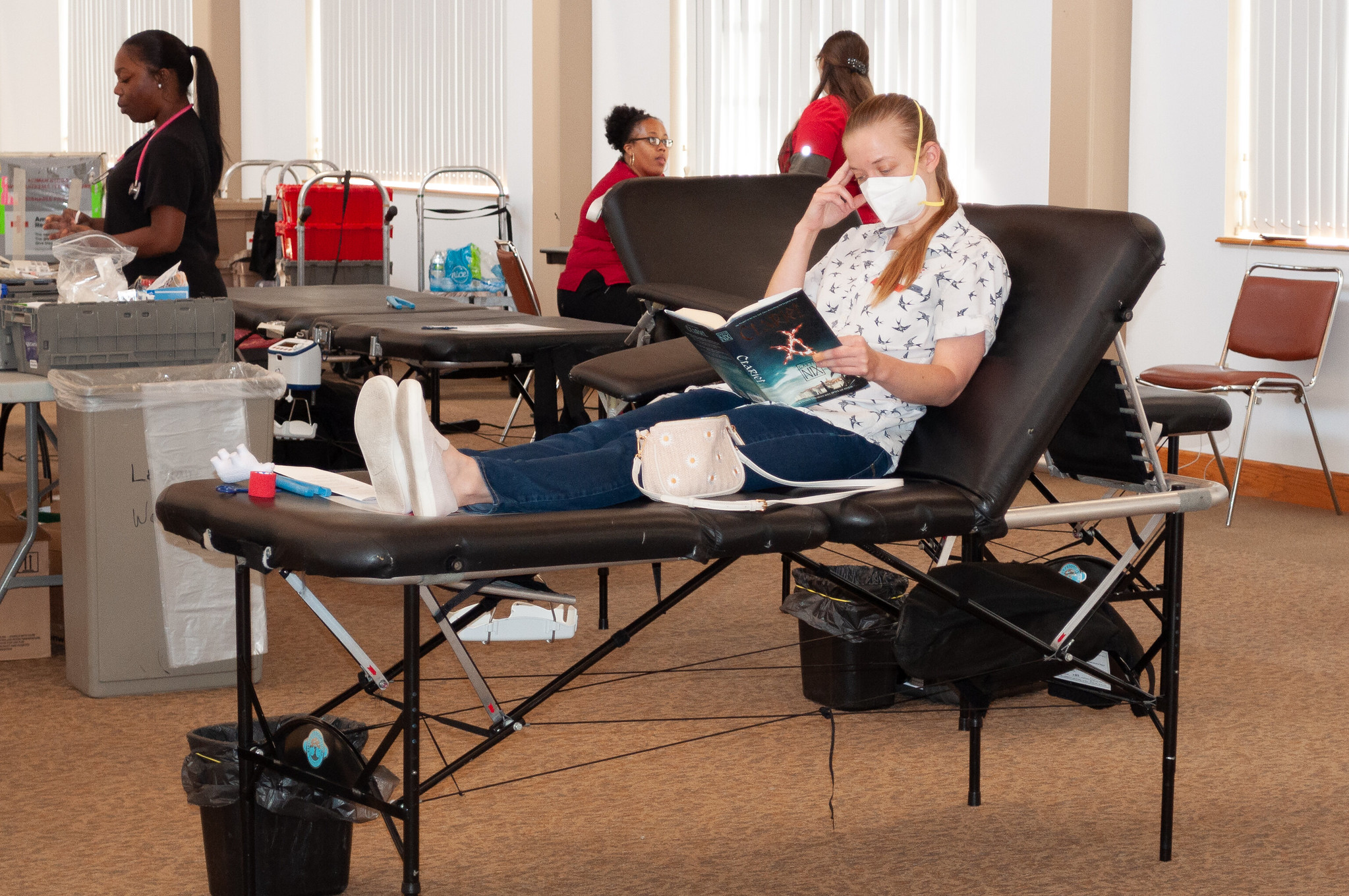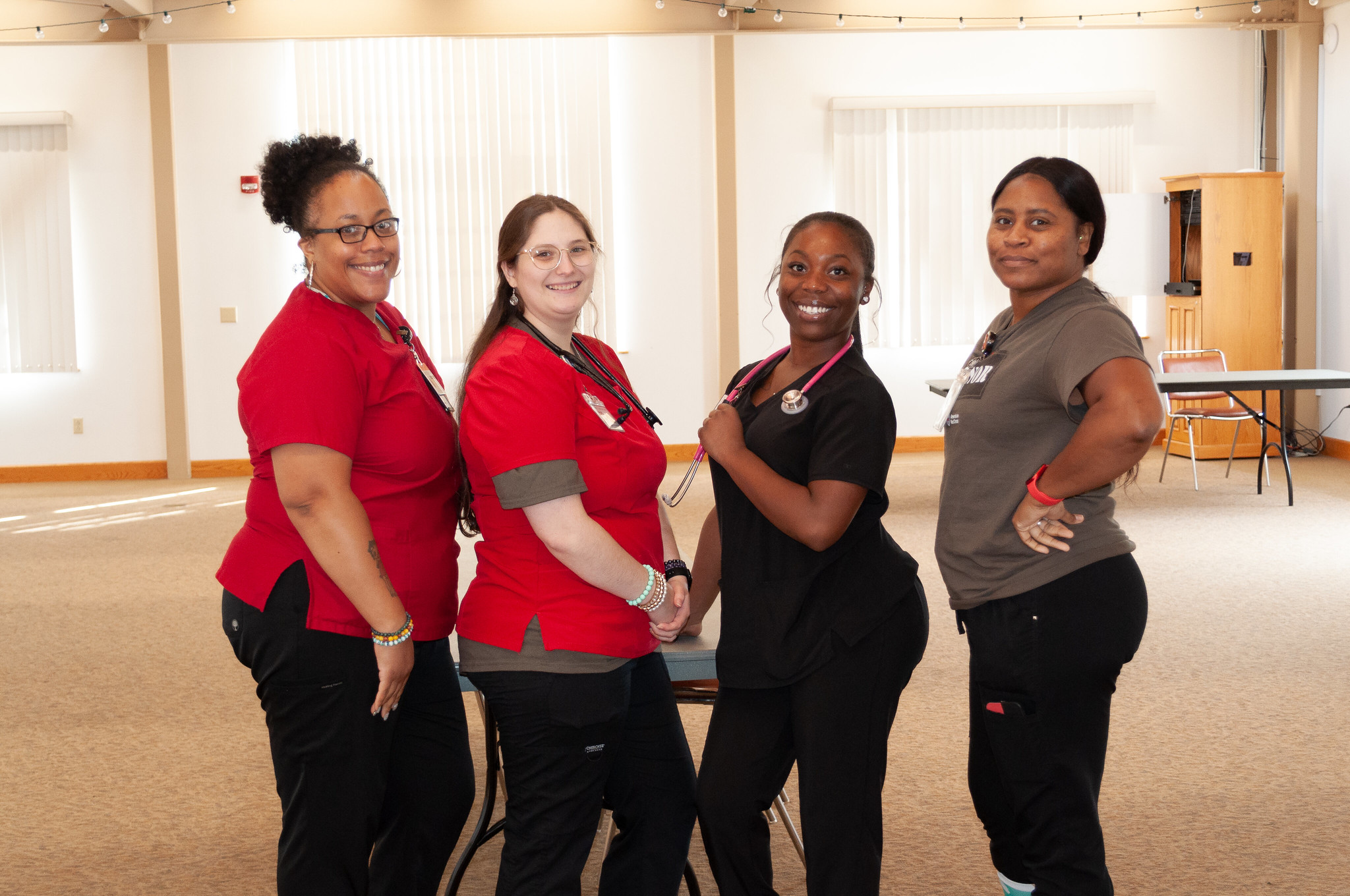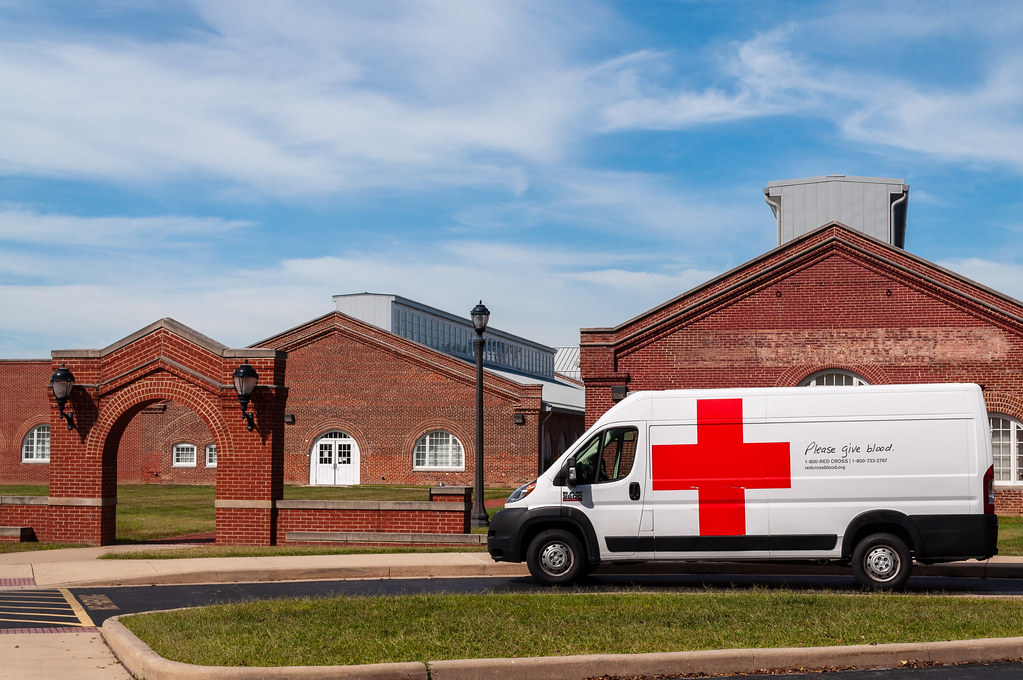By Jeannette Carrington
Photos taken by Jeannette Carrington
The Lewis and Clark Community College Veterans Club joined forces with the Red Cross to host a blood drive on September 1st at the N. O. Nelson campus in Edwardsville, Illinois.
“We are proud to be joining forces once again with the American Red Cross on this community blood drive,” said L&C Director of Career and Veteran Services Terry Lane. “By taking part in this opportunity to help others, you just might save a life.”
There are several types of blood donations: whole blood, Power Red, Platelets, and Plasma.
Whole blood is the most flexible type of donation. It can be transfused in its original form or used to help multiple people when separated into its specific components of red cells, plasma, and platelets.
Donor James Fritcher said that he is a regular donor. He had a little more time available today, so he decided to be a Power Red donor.
During a Power Red donation, you give a concentrated dose of red cells, the part of your blood used every day for those needing transfusions as part of their care. This type of donation uses an automated process that separates your red blood cells from the other blood components, and then safely and comfortably returns your plasma and platelets to you.
With just a little extra time at your appointment, you can donate more red cells and increase your impact on patients in need.

Platelets are tiny cells in your blood that form clots and stop bleeding. Platelets are most often used by cancer patients and others facing life-threatening illnesses and injuries.
In a platelet donation, an apheresis machine collects your platelets along with some plasma, returning your red cells and most of the plasma back to you. A single donation of platelets can yield several transfusable units, whereas it takes about five whole blood donations to make up a single transfusable unit of platelets.
Platelets are collected at Red Cross donation centers only and are not collected at blood drives.
During an AB Elite donation, you give plasma, a part of your blood used to treat patients in emergency situations. AB plasma can be given to anyone regardless of their blood type. Plasma is collected through an automated process that separates plasma from other blood components, then safely and comfortably returns your red blood cells and platelets to you. AB Elite maximizes your donation and takes just a few minutes longer than donating blood.
Plasma is collected at select Red Cross donation centers.
Donors James Fritcher, Madeline, Keith Lueking, and D. Maes were all repeat donors. They all said that they donate as often as allowed.
All donors received a limited-edition Red Cross T-shirt as a thank you.
There is an urgent need for blood donors. To schedule a donation appointment, go to Redcrossblood.org or call 800-RED CROSS.
Walk-ins are always welcome, but scheduling an appointment online helps the Red Cross ensure they have the right number of people and supplies on hand for the drive. Wait times vary between donations depending on the type of blood donation you complete. Those who wish to donate can streamline their donation process and save up to 15 minutes by visiting RedCrossBlood.org/RapidPass to complete the pre-donation reading and health history questions.
Anyone with questions about the Lewis and Clark Community College Veterans Club and services can contact Lane at tdlane@lc.edu or at (618) 468–5500, or by visiting
Lc.edu/veterans.
View the full collection of photos on Flickr.





